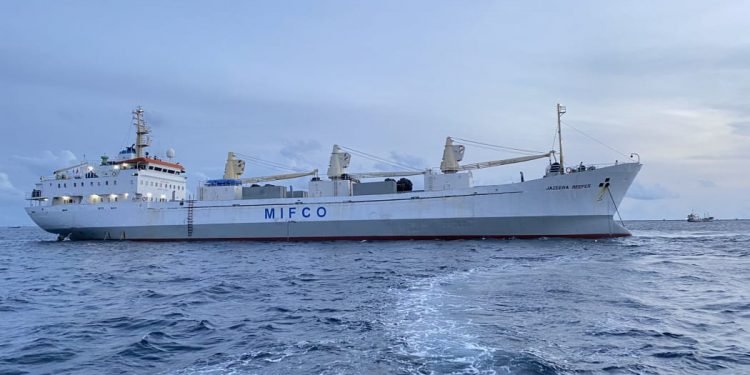
MIFCO Adopts International Market Rates for Fish Purchases
MIFCO has announced a significant shift in its fish purchasing policy, effective Monday, as it will now base its buying prices on international market rates. This move comes as part of a broader strategy to address the company’s financial difficulties and ensure more sustainable and efficient operations.
Starting this week, MIFCO will determine its purchase prices for frozen skipjack tuna based on global market rates and the cost of exporting the fish. The company will fix and publish these prices on a weekly basis. This adjustment aims to stabilize the company’s operations and provide a fair, market-driven price for the fish.
The decision reflects MIFCO’s commitment to improving its financial health and operational efficiency. With the company’s debt surpassing MVR 1.2 billion, it faces serious financial challenges and is on the brink of bankruptcy. The shift to international pricing is expected to help streamline costs and enhance revenue, crucial steps given the company’s current fiscal state.
MIFCO’s financial troubles have been exacerbated by recent delays in payments to local fishermen. These delays were attributed to the previous government’s decision to purchase fish at inflated prices, a politically motivated move ahead of the 2023 presidential election. By aligning its purchasing strategy with global market rates, MIFCO aims to ensure timely and consistent payments to local fishers.
In addition to addressing financial and operational challenges, MIFCO's new pricing strategy is designed to support the sustainability of its fish purchasing and processing activities. The company’s management has expressed its commitment to working closely with the government to implement efficient cost-cutting measures and boost overall revenue.
This strategic shift represents a crucial step for MIFCO as it seeks to navigate its current financial difficulties and lay the groundwork for a more sustainable future. By adopting a more market-oriented approach, MIFCO hopes to strengthen its position and better support the local fishing industry.